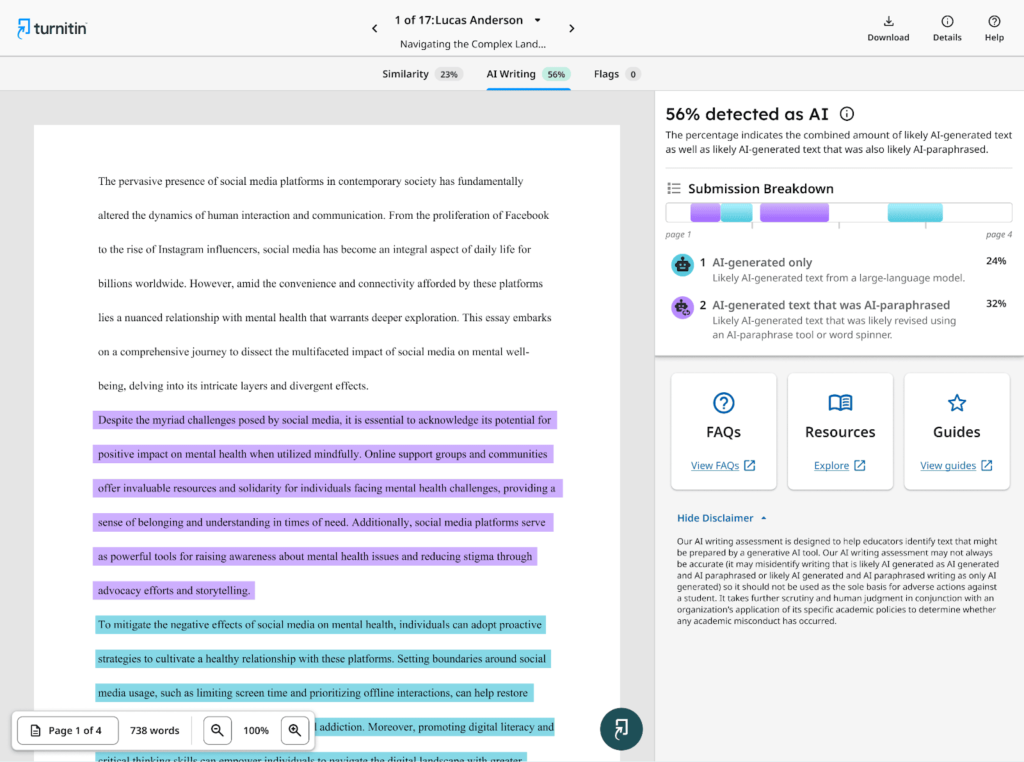
AI‑writing detector baked into Turnitin’s plagiarism suite for academic institutions.
Turnitin offers seamless LMS integration and near‑zero false positives, but its cautious thresholds and institution‑only access mean moderate AI usage can slip through and the public cannot self‑check.
80 %
0.1 %
Unknown under adversarial attack evaluations
1
A proprietary transformer trained on academic prose and GPT outputs predicts AI authorship at the sentence level and reports overall document percentage.
AI score appears alongside originality report in LMS.
Flags specific lines likely generated by AI.
Internal study shows equal FP rates for L1 and L2 writers.
| Benchmark | Accuracy | False Positive | Adversarial Robustness | Notes |
|---|---|---|---|---|
| RAID (6 M docs) | % | % | Not evaluated in RAID benchmark | |
| Other Studies | 99% | 0.1% | Open Information Science: 126/126 correct classification |
Turnitin’s conservative detector virtually eliminates false accusations and works well for full‑length essays, but misses small AI excerpts and may be bypassed by obfuscation. However, the independant studies have too small sample to trust Turinitin outside it own internal tests.
Bundled with Turnitin institutional licenses (tens of thousands USD/yr); no standalone purchase or public access.
Universities screening student submissions at scale.
N/A – platform restricted to education.
Academic integrity offices monitoring AI usage.
Researchers analyzing prevalence of AI writing.
Looking to explore other AI detection tools? Here are our curated picks with quick highlights so you can compare at a glance.
Freemium plagiarism + AI, public access.
Paid SaaS with highest overall accuracy.
For institutions already on Turnitin, the AI detector is a valuable low‑risk flagging tool; those outside academia will need alternatives with public access.